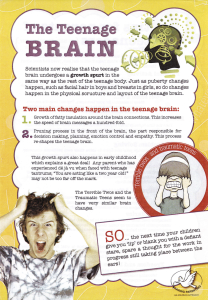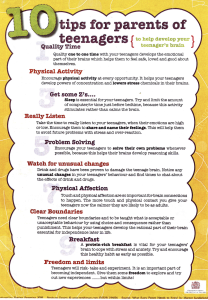At Sharing Parenting we get lots of questions about what behaviours parents and carers can expect to see once their child moves in to the teenage years.
What is normal?
We don’t like to use the term ‘normal’, as what is normal for one family, might be very different for another. However, we have listed a few behaviours and changes that you can expect to see in your teenager below.

Brain Changes
The first thing to mention is that there are major brain changes happening for teenagers during this time. For them, they may feel concerned, upset or embarrassed about some of their behaviours. It is important to remember that some of their behaviour changes are out of their control. They will need your support and understanding during this time.
This video explains more:
When can teenage behaviours start?
Changes can start from the age of 11 or 12 years old (start of puberty) and don’t stop until the brain is fully matured (which can be up to the age of 25 years old).
Sleep
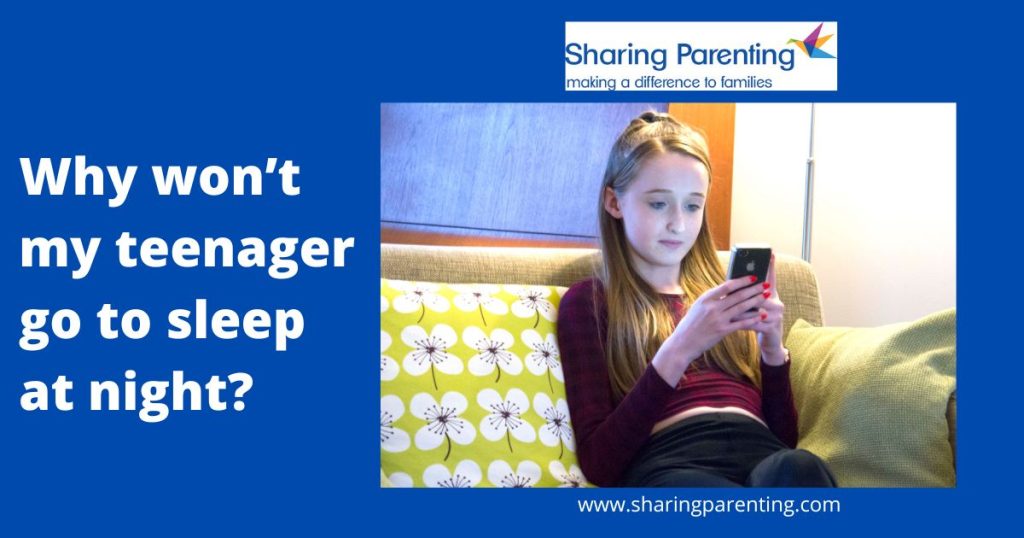
Your teenager is experiencing big hormonal changes. One of these is called Melatonin. Melatonin is the hormone we all need to sleep. For teenagers this hormone often won’t reach them until 11.00pm, which makes it difficult for them to feel sleepy or go to sleep.
How you can support them
- Understand that they may not feel sleepy until much later in the evening.
- Encourage a calm environment in the evening but do not insist on sleep. Low lights, reading, listening to music, coming off screens may help to keep them and the house calm.
- Let them nap after school to catch up on sleep and/or lie in at the weekends.
Friends
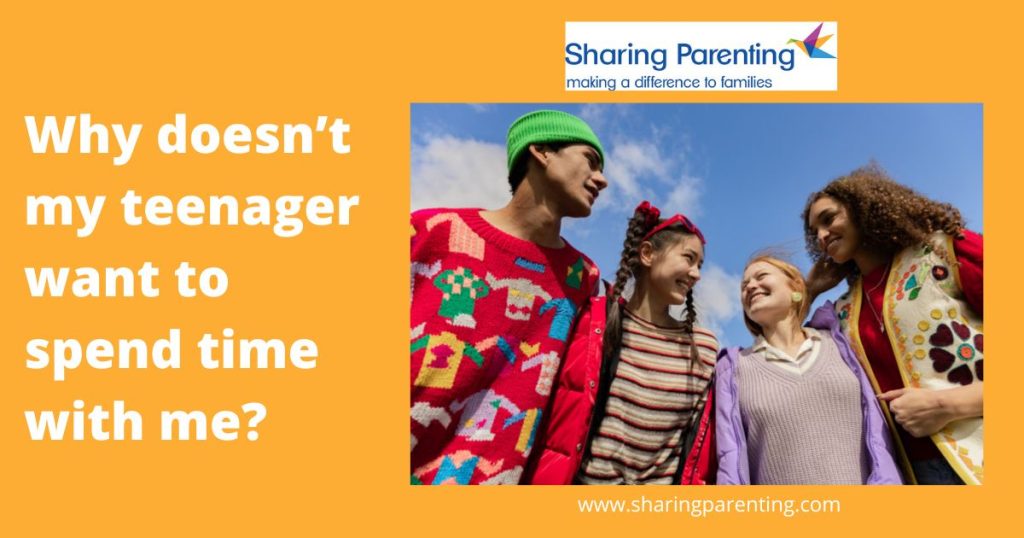
Friends become really important to teenagers. Parents may feel they have to take a back seat during this time or that their relationship is not the same.
How you can support them
- Understand that this is a natural part of growing up and maturing. The strong foundations that you have set in all the previous years will still be there. Once they have passed through the teenage years you may feel they have ‘come back’.
- Show an interest in your teenager’s friends. Allow your teenager to invite their friends around to your home or out with you and your teenager for the day.
- Ask them what they like about their friend. What makes them a good friend?
- Continue to create opportunities for you to communicate with your teenager – plan car journeys, walks, tasks such as cooking together etc. – where natural conversations will happen.
Spending time in their room or talking less
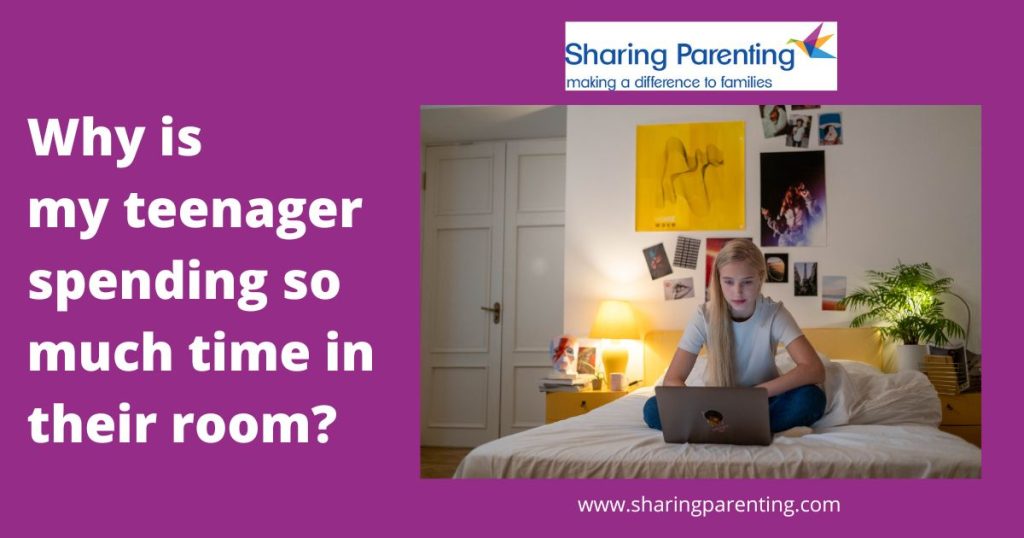
Often teenagers like to spend more time on their own or in their room. Remember they are often tired because they struggle to get enough sleep at night.
How you can support them
- Allow them to have time alone without taking it personally.
- Encourage time when you can be together so you can check in with them and keep the communication open – this may be dinner time or on a walk or car journey.
- Be prepared to speak to them when they are feeling communicative – this is often later in the evening – be prepared to swap things around so you can be available to them even if you are feeling tired.
Risk

To feel the same excitement as they did before their teenager years, teenagers need to experience a higher degree of risk, and will often seek it out!
How you can support them
- Understand they might enjoy risky behaviours – at the same time as keeping them safe.
- Plan and encourage controlled risky activities such as skate boarding, organised off road cycling, organised high rope activities, paint balling etc.
- Talk to them about your house rules/boundaries and what is acceptable and what is not.
- Seek advice if you are concerned about illegal or dangerous behaviours.
Food and drink

Your teenager will need to drink and eat more during the teenage years. This is due to the hormonal changes and physical growth during this time.
How you can support them
- Understand this is a biological and physical need and don’t make them feel bad about eating or drinking more.
- Encourage healthy food choices but allow occasional lapses.
- Get them involved at dinner time – invite them to help you prepare dinner or encourage them to shop, cook or choose a meal once a week for the family.
- Encourage them to help you shop and budget.
- Provide them with a large water bottle to carry around with them.
- Stock up on pasta and foods that will fill them up!
Sarcasm

Teenagers don’t usually like sarcasm – even though they may use it on you or others. This can often be misinterpreted and can damage their self-esteem.
How you can support them
- Avoid sarcasm and protect your relationship and trust with them.
- Use ‘I’ statements if they are using words that hurt you – For example say: “I feel upset about”.
Movement – this may affect their balance.

Whilst these physical and mental changes take place, teenagers may feel out of touch with their own body. This may affect the way they move, walk and balance.
How you can support them
- Understand that this can be a confusing time for teenagers.
- Be positive about any changes. If you are concerned about their weight, encourage healthy bodies or lifestyles, rather than talking about how much they weigh or their clothes size.
- Encourage physical activities that interest them – cycling, walking, yoga, skateboarding, swimming etc.
A sexual interest
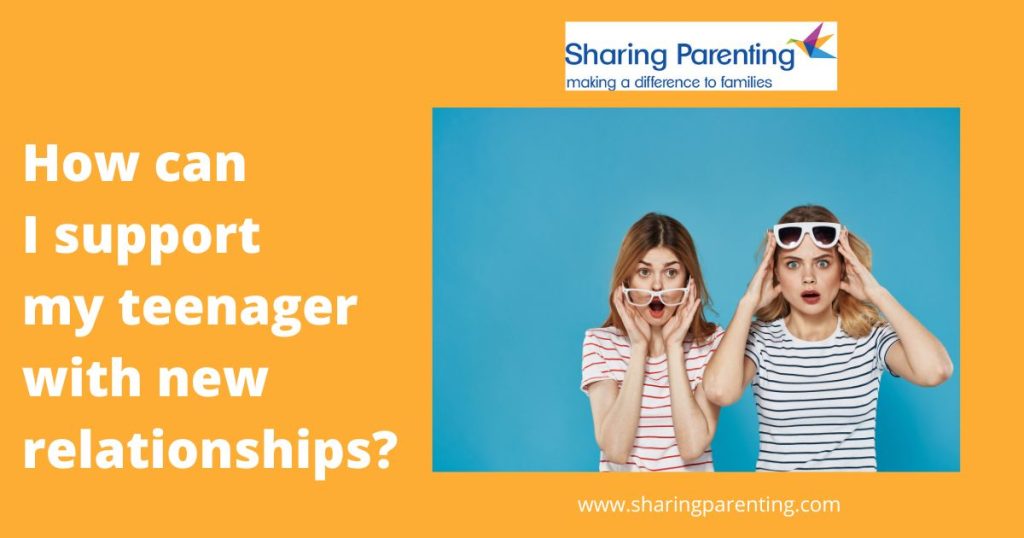
Teenagers may begin to experience sexual feelings or an interest in others.
How you can support them
- Keep communication open and talk about healthy relationships and behaviours.
- Try to listen and be open minded.
- Remember to keep them safe – age and stage.
Eye contact

Often teenagers don’t like too much eye contact and may see it as interrogation!
How you can support them
- Don’t insist on eye contact.
- Try not to sit opposite your teenager when communicating. You may find if you go for a walk or drive or do a task together – such as baking, shopping, construction – the conversation will flow better.
Memory and organisation
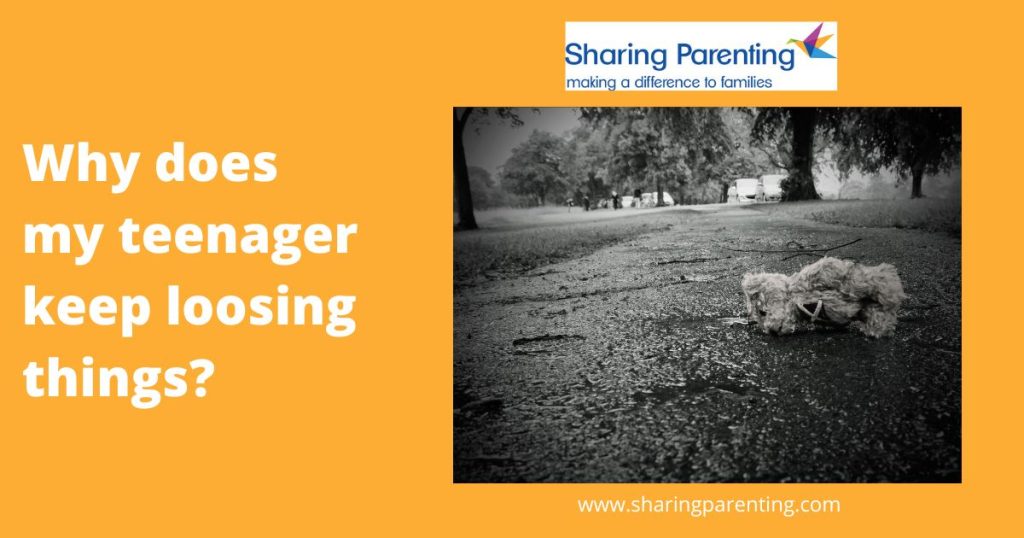
Whilst the brain is repruning and making new connections, teenagers often forget things or find it hard to organise themselves. Often parents talk about how they ‘used to be’ and worry they have lost the skills they once had.
How you can support them
- Understand that they are likely to forget and loose things, and they are not doing it on purpose or because they don’t care.
- Encourage routines and provide places for them to keep their things. For example a cupboard for school books, a desk where they can do their homework etc.
- Use natural consequences to encourage responsibility. For example, if they loose their new trainers they will have to wait or save for a new pair.
- Avoid labelling them – label the behaviour not the person. For example ‘That was a forgetful thing to do’ rather than ‘You are forgetful’.
11. Emotional Regulation
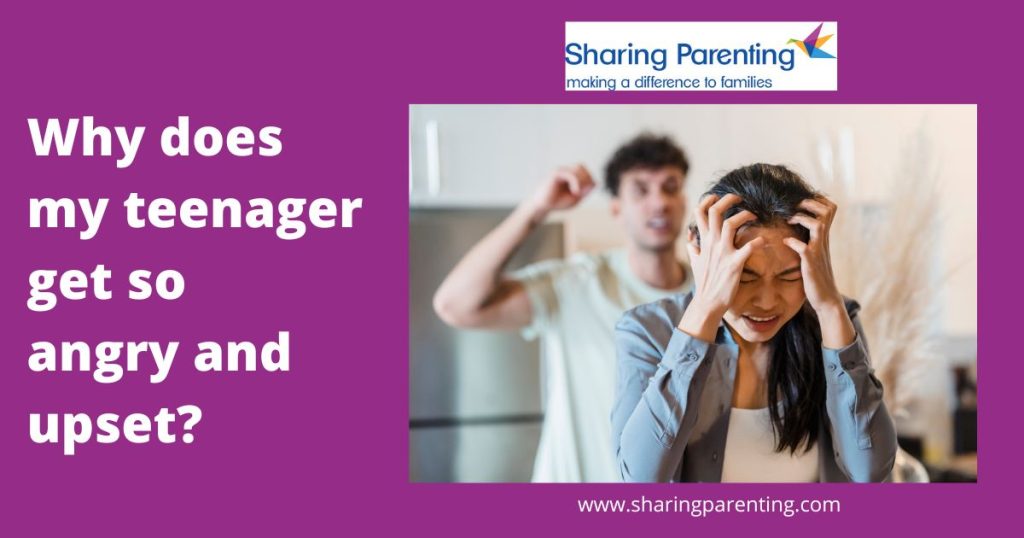
Whilst the brain is working hard it may also misfire. You may see strong emotions such as anger or tears. Emotions felt during the teenage years can feel much stronger, deeper and more important than at other times.
How you can support them
- Try to be empathetic.
- Use I statements to explain to them how their behaviour makes you feel.
- Talk to them about the brain changes and feelings they may experience and discuss ways they can support themselves during this time – journally, meditation, talking to someone they can trust etc. may help.
- Talk to them when they are calm, about what they could do next time they feel that way – for example: go to their room or the garden, say ‘I need to think about’ or ‘I need to be on my own to think about this’ this etc.
You can download a PDF of this Sharing Parenting Teenagers Handout HERE
If you are concerned about any behaviours which you feel are unusual or dangerous please contact your GP, school or other organisation for further information.
Podcasts

Please also take a listen to our Podcasts
If you have a teenager you may be interested in: The Changing Teenager Brain
Online and Vlogs

See our Online Resources including short vlogs.
Positive Strategies
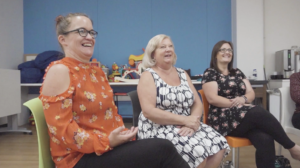
See our full list of positive strategies HERE
Here is a list which may be most relevant to parents of teenagers:
Screen time – How much is too much?
Discipline- What is the best way to discipline my kids?
Can learning be fun?
Why board games can still help your family connect in the 21st century
What is modelling?
Who’s responsibility is it anyway?
Parenting a child with English as an additional language
Time for teens
A to Z of parenting
Sharing Parenting’s advent of behaviours
Flow chart to find the NEED behind the behaviour
Why do teenagers need to play too?
Do you have an owl or lark in your family?
Meditation for families
A parenting tip for everyday of the month!
How do I get my teenage son to join in family activities?
Video tips for positive behaviour
Do we turn into our parents?
Filling your jug – taking care of YOU too!
How can I help my child to take responsibility with choice and consequences?
Don’t say don’t!
Swap ‘You’ for ‘I’ – I statements
Join us in the world of podcasting
What is the difference between praise and encouragement?
How does your parenting style effect behaviour and self esteem?
Are you restricting growth by labelling your child?
Are you really listening? – Active listening
How to identify and respond to the need behind the behaviour
Stop – think- act
Can you change the mould?
Why do I always feel I am failing as a parent? (Podcast)
Why are my children so different from each other? (Podcast)
My children are always fighting, how can I get them to like each other? (Podcast)
My child is always hurting me, what can I do? (Podcast)
Strategies to support anxious children
Catch them being good
“What changes are normal for teenagers? My teenager won’t sleep at night and is difficult to wake in the morning” (Podcast).
Supporting children through divorce or separation
Teenage Drinking
PDF Handouts to download:
Further Resources and Support
Please click on the links below for further external support.
https://www.youngminds.org.uk/parent/parents-a-z-mental-health-guide/anger/
https://www.familylives.org.uk/?gclid=Cj0KCQjwmICoBhDxARIsABXkXlJcbusTszl5Z6MVHsHF_0R3oKEOhx6zLvUQlDzxBF_7ZWyrZwYB6mQaAtsEEALw_wcB
If you are concerned about any behaviours which you feel are unusual or dangerous please contact your GP, school or other organisation for further information.

